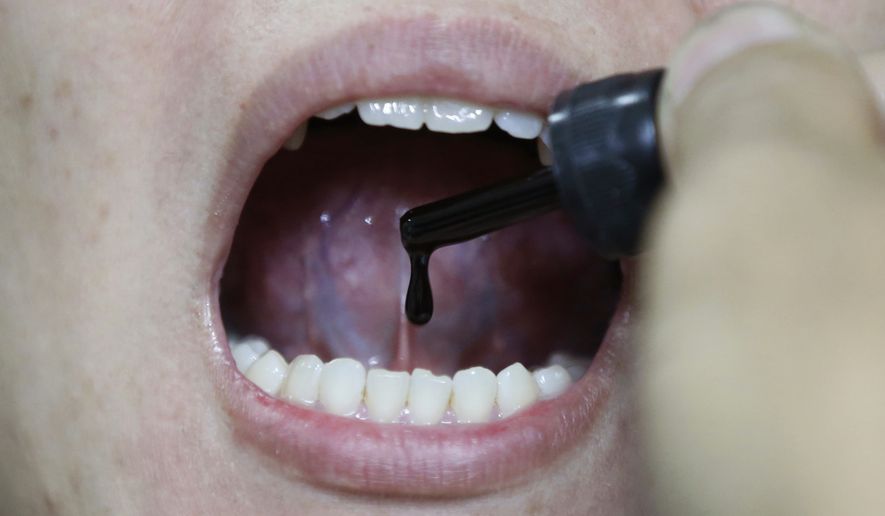BANGKOK — In a move that has pot connoisseurs worldwide stocking up on Doritos, Thailand’s king this week has signed a royal decree legalizing marijuana and kratom for medical uses, allowing doctors, patients, schools, farmers, entrepreneurs and exporters to cultivate, possess and dispense both drugs.
Like Cuba and its cigars and France and its wines, Thailand is renowned for the quality and potency of its local weed. The move has raised hopes among many that the royal decree clears the way for legalizing recreational marijuana smoking and production soon.
King Maha Vajiralongkorn signed the medical measure two months after the military government’s parliament unanimously approved it, a legislative sequence required by the constitution.
Patients with prescriptions can now receive medical marijuana and kratom, an evergreen tree whose leaves are said to have health and stimulative benefits. Farmers need a Narcotics Control Board permit.
Recreational use of both drugs is still illegal.
Most of Thailand’s medical marijuana and kratom is initially expected to be imported from the U.S., Canada, Israel and other nations that have professional health standards for drug manufacturing, but the mere whisper of a rumor that fabled Thai pot varieties such as Northern Lights — praised by one marijuana site for its “resinous buds, fast flowering, and resilience during growth” — could soon be hitting the world market has created quite a buzz.
“It’s like the Wild West right now,” Kitty Chopaka from the Thai cannabis advocacy group Highland recently told The Diplomat news website. “It’s like a gold mine just opened up and people are just trying to get the shovel and get into line.”
Commercial medical-grade marijuana and kratom must be produced in strictly controlled facilities that cost millions of dollars to construct, staff and operate.
That makes it difficult for Thailand to quickly produce enough medical marijuana or kratom to meet the demands of Thai and foreign patients.
But where there’s a market, there’s usually a way to supply it, many Thais say, and with a cultivation tradition dating back centuries and some of the world’s most prized strains, the economic payoff could be enormous.
Every Thai adult could earn $13,000 a year from six personal marijuana plants if the law is loosened to include recreational use, said Anutin Charnvirakul, an ambitious politician with a minor party known as the Bum Jai Thai (BJT) contesting next month’s legislative and prime ministerial elections.
Recreational marijuana in time could become the biggest cash crop in a country that vies with India for the title of the world’s largest rice exporter, Mr. Anutin said.
Predictions of big money recently persuaded Prime Minister Prayuth Chan-ocha, who faces national elections next month, to fast-track legalization measures. Polls show the move is popular among voters.
An election March 24 for a new House of Representatives could result in an extension of Mr. Prayuth’s prime ministry, which began when he seized power by toppling an elected government in 2014.
Pro-democracy parties, however, hope to win enough House seats to form a coalition against Mr. Prayuth.
Mr. Anutin’s party may link up with whoever wins, so the BJT can enact its policies.
Mr. Anutin recently erected street signs, illustrated by a bright green marijuana leaf, informing voters about his party’s pledge to legalize both medical and recreational marijuana.
Addictive image
Mr. Anutin said Washington’s “political propaganda” during the 1960s and 1970s tricked Thais into believing that marijuana was “addictive,” because thousands of U.S. troops were stationed at air bases in this Southeast Asian country while supporting the war in Vietnam.
Some U.S. soldiers were getting blitzed on powerful local marijuana known as “Thai Sticks.”
“During the Vietnam War, the reason why the U.S. made the announcement that marijuana was part of the narcotic drugs was because once all the [U.S.] soldiers consumed this kind of substance, they could sleep. It made people calm down. It didn’t make people become aggressive,” said Mr. Anutin, addressing a “Marijuana, for Money or Medicine?” panel at the Foreign Correspondents Club of Thailand last week.
As a result, Thailand’s penalties for marijuana included long prison terms.
Mr. Anutin runs one of Thailand’s biggest construction firms, Sino-Thai Engineering & Construction, and directs other big companies.
“We have five types of commercial crops: rice, palm [oil], rubber, tapioca and sugar cane,” he said. “Why don’t we just add one more? The record shows that this [marijuana] will override the first five” with bigger profits.
His party studied “the ’California model’ on this marijuana thing” to learn about legalizing recreational cannabis.
Legal growing, selling and consuming of medical and recreational marijuana should be regulated in a fashion similar to tobacco, which is controlled by the Tobacco Authority of Thailand, Mr. Anutin said.
Tobacco farmers must sell their harvest to the TAOT, which produces cigarettes, conducts research, determines quality and works with the government to prevent illegal tobacco trade.
Thai entrepreneur Julpas “Tom” Kruesopon is advising Mr. Anutin about marijuana’s commercial possibilities and was also on last week’s media panel.
“I always tell Mr. Anutin he’s going to bring back Thailand’s main [tourism] slogan, ’Land of Smiles,’” Mr. Kruesopon said.
Mr. Julpas was an adviser to Prime Minister Yingluck Shinawatra before Mr. Prayuth’s coup ousted her government.
“Bhum Jai Thai is basically saying, ’Let’s go ahead and do medical and recreational at the same time,’” Mr. Julpas said.
Mr. Anutin’s party was “very concerned that if only medical [marijuana] was approved in Thailand, the price of the medicine would be so high because only a few [Thai facilities] will be able to manufacture it,” Mr. Julpas said.
“You might not know this,” he added, but “if you visit a Thai noodle shop, you’ve probably been having noodles with marijuana for quite a while.”
“We put marijuana into our food. That’s why Thai food tastes so good.”




Please read our comment policy before commenting.